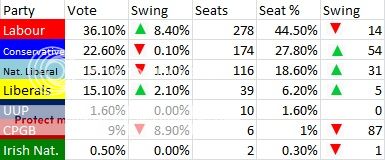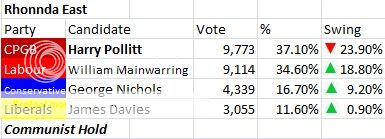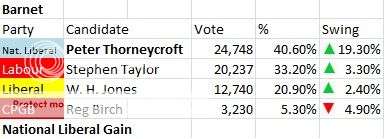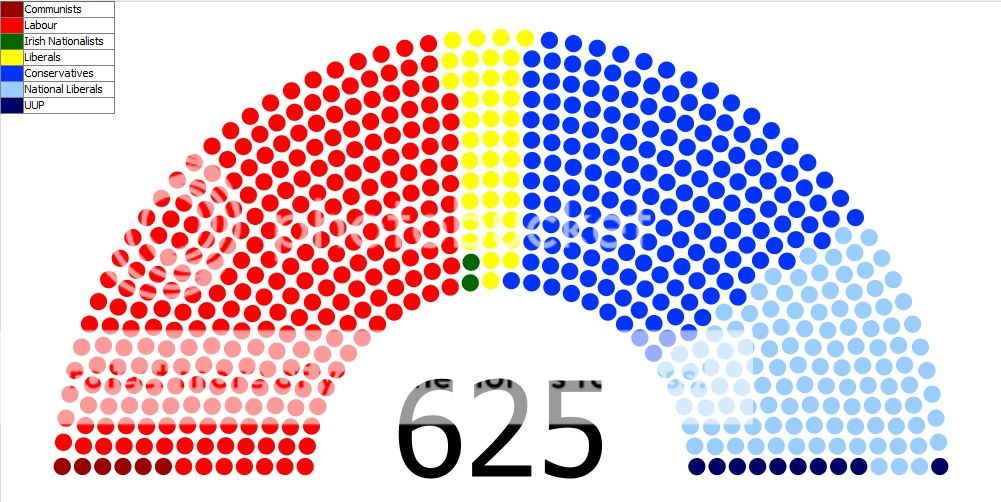The Westminster System - A British Interactive AAR
- Thread starter Tommy4ever
- Start date
-
We have updated our Community Code of Conduct. Please read through the new rules for the forum that are an integral part of Paradox Interactive’s User Agreement.
You are using an out of date browser. It may not display this or other websites correctly.
You should upgrade or use an alternative browser.
You should upgrade or use an alternative browser.
- Status
- Not open for further replies.
Oh why not I'll join in.
Moderate Labour
Lemme fix your vote for you Gonzo.
Radical Labour*
OR
CPGB*

I'm kidding by the way, welcome to the party you Moderate scum.
Seeing all the Radical votes I just thought it would be more interesting to go Moderate to balance things up a bit. That way the Labour Party can revel in its favourite past time. Punching itself in the face!
We might need a Liberal vote or two aswell, not sure whether they're still above their threshold or not.
Ya know, there is an interesting American senator... I think his name is Joseph McCarthy... Don't agree with his tactics, but I agree with his goal.
I've never even heard of Bolsover until today, I would have thought Birmingham or Manchester would be better places to find communists.
In these days, Bolsover was a prominent mining seat IIRC. And we all know how militant those guys are.
Sadly, arresting a seventh of our population just because they are commies is probably out of the question, yes.Ya know, there is an interesting American senator... I think his name is Joseph McCarthy... Don't agree with his tactics, but I agree with his goal.
Also, the witch hunts might not work for the sole reason that there are more witches than there are hunters.
We might need a Liberal vote or two aswell, not sure whether they're still above their threshold or not.
We need a total of 67 votes in order for them to go under.
Having newcomers that joined in this month drop their first ever post in a thread like this, especially during the election is always a bit fishy. 
Also Contravarius, since when have you been against hunting witches?
Also Contravarius, since when have you been against hunting witches?
Well, the thing is, witchhunts work when there's at least 1 to 10 ratio of witches and hunters, in our situation the HUGE amount of witches ruins everything. We probably should've started earlier with these huntings.Also Contravarius, since when have you been against hunting witches?
Having newcomers that joined in this month drop their first ever post in a thread like this, especially during the election is always a bit fishy.
True, however in fairness plenty of forumites made their AARland debut in interactive AARs such as this one.
Total Vote: 65 (+5) - a strong showing, we're getting towards LTRCT levels of turnout.
Labour R: 16
Conservatives: 15
National Liberal: 10
Liberals: 10
Labour M: 8
CPGB: 6
%s of Vote:
Conservative-National Liberal Alliance: 38.5%
Labour: 36.9%
Liberals: 15.4%
Communists: 9.2%
Weighted Votes:
Labour: 72
Conservatives: 45
National Liberals: 30
Liberals: 10
Communists: 1.5
Parliamentary Seats:
Labour: 278
Conservatives: 174
National Liberals: 116
Liberals: 39
UUP: 10
Communists: 6
Irish Nationalists: 2
Result: Hung Parliament. The Liberal Party holds the power of kingmaker - capable of allowing either Labour of the Conservative-National Liberal alliance to form a government. As it stands, Clement Attlee remains Prime Minister with a Labour-Liberal government in place. However, with the Radicals securing 2/3s of the Labour vote it will be difficult for Attlee to keep the Liberal support he needs for a majority whilst avoiding open rebellion within his own party.
Labour R: 16
Conservatives: 15
National Liberal: 10
Liberals: 10
Labour M: 8
CPGB: 6
%s of Vote:
Conservative-National Liberal Alliance: 38.5%
Labour: 36.9%
Liberals: 15.4%
Communists: 9.2%
Weighted Votes:
Labour: 72
Conservatives: 45
National Liberals: 30
Liberals: 10
Communists: 1.5
Parliamentary Seats:
Labour: 278
Conservatives: 174
National Liberals: 116
Liberals: 39
UUP: 10
Communists: 6
Irish Nationalists: 2
Result: Hung Parliament. The Liberal Party holds the power of kingmaker - capable of allowing either Labour of the Conservative-National Liberal alliance to form a government. As it stands, Clement Attlee remains Prime Minister with a Labour-Liberal government in place. However, with the Radicals securing 2/3s of the Labour vote it will be difficult for Attlee to keep the Liberal support he needs for a majority whilst avoiding open rebellion within his own party.
The onus is now on the Liberals to temper the excesses of the Bevanites in any coalition.
I expected a better showing from my CPGB comrades. If their results keep going this way I will most certainly start moving towards the more Radical Labourites. At least they have some say in parliament!
I expected a better showing from my CPGB comrades. If their results keep going this way I will most certainly start moving towards the more Radical Labourites. At least they have some say in parliament!
I'm glad that they've suffered a setback; the Communist Party IIRC never achieved more than two or three seats in Parliament in OTL, whereas the British Left was best expressed by a strong contingent of radical Labour MPs such as Nye Bevan, Michael Foot and Tony Benn. Things are much more historical this way.
The worker has been saved!
Yes they have been saved from liberty and prosperity! We can now welcome oppression and destruction! The true savior of the working class
The Election of 1949
In four years a lot can change. As British society began its post war transformation there had been seismic shifts in the country’s political scene. Divided in 1945, the Right had moved towards close unity as it rallied against the socialism of the Labour led government, the Communists had shifted from being a valued governmental partner with a rapidly growing mass base to a ginger group – seemingly isolated from the rest of the political spectrum and tumbling popular appeal, finally a rift was opening up within the country’s largest party, Labour, between the moderate leadership of Clem Attlee and radical Bevanite oppositionists.
1949 witnessed a significant realignment of constituencies. To the horror of the party leadership, there was a distinct and very noticeable radicalisation of the party at a local level – responding to Communist competition (and a surge of ex-Communist supporters and members into the party) in its industrial heartlands the Labour Party witnessed a major surge in support for the Bevanites. Tacking to the Left the Bevanites fought bitterly with Communists in seats that had been tightly contested in 1945 and almost swept the CPGB form parliament, with the Communist voting having been cut in half to the benefit of Labour. However, the newly formed Conservative-National Liberal Alliance prevented Labour’s consolidation of its core districts from allowing it to sweep to a majority. Instead the collaboration of Conservatives and National Liberals allowed the right wing parties to win an additional 85 seats, almost all of them Labour marginal, despite actually seeing their combined vote fall slightly. Elsewhere, boundary changed robbed Irish Nationalists of one of their three seats whilst the Liberals increased their share of the vote for a second successive election – ensuring that the party would remain an important force in British politics.
In the South Wales constituency of Rhonnda East the collapse of the Communist vote was made visibly clear. In 1945 the CPGB General Secretary Harry Pollitt had captured the constituency’s seat with a massive majority – it was seen as perhaps the single safest Communist seat in the country. With the local Labour candidate adopting a radical Bevanite position there was a concerted effort to humiliate the General Secretary by unseating him. Although Pollitt retained his seat, he did so by a margin of just a few hundred votes – the vast majority of Communist MPs would not be so lucky.
In Chelmsford, Essex, the independent MP associated with the small ‘Common Wealth Party’ J. P. Preistley faced tough opposition from the Right. After his election in 1945 Preistley had largely supported the government and built up a strong relationship with the local Labour Party – to such an extent that Labour agreed not to challenge him in 1949 so that he might have a better chance against the Conservative candidate. Benefitting hugely from the electoral pact with the National Liberals, Hubert Ashton was returned for the Conservatives – actually seeing a smaller share of the vote than the Conservatives and National Liberals had won four years before.
In Barnet the Conservative-National Liberal electoral pact once again proved its considerable worth. Noticeable for having had both a strong Conservative and National Liberal presence in 1945 the seat had been won by Labour. With the two right wing parties uniting behind former Conservative MP Peter Thorneycroft the National Liberals made an important gain. The re-entrance of Thorneycroft into parliament would later have a major impact upon the National Liberal Party – the new member for Barnet being heavily influenced by the ideas of LSE professor Friedrich Hayek.
Whilst the election had successfully reaffirmed the mandate of the Labour-Liberal coalition, admittedly with a slightly reduced majority, and the significance of the Communist Party had been massively reduced within parliament 1949 was certainly not an unmitigated success for Attlee. Whilst before the election the parliamentary party had been more or less in balance between left wing Bevanites and his own moderate supporters – now the Left had come dominated the parliamentary party even as its influence continued to grow at a local level.
Squeezed between the need for a moderate policy in order to maintain the alliance with the Liberals that was necessary to remain in government and the loud demands of the radicals, who if ignored could very well split the Labour Party, the Prime Minister nervously embarked on a second term in office.
Last edited:
- Status
- Not open for further replies.







